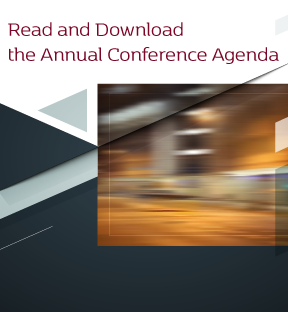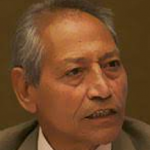ERF 29th Annual Conference: The Future of MENA Development Path: Risks and Opportunities in an Emerging World Order
FromMay 04, 2023 To May 06, 2023
Cairo, Egypt
While the Middle East and North Africa (MENA) region suffers from several structural characteristics related to the diversification of their economies, the quality of economic and political institutions, and high levels of inequality, poverty, youth unemployment and informality, it is facing several external shocks that add another layer of complexity to its development path. Thus, the 29th ERF Annual Conference will chiefly focus on both the risks and opportunities faced by this region in such a changing and challenging environment. Moreover, it will shed the light on the importance of reorganizing priorities and adopting active economic and social policies at both the short and long-term horizons, especially in terms of digital transformation, green economy, and fintech that are indispensable for a new development model.
Under this overarching theme regarding the risks and opportunities of MENA’s development path, the 29th Annual Conference articulates the issues in question in the context the plenary sessions, the special panels and a select number of the parallel sessions. Click for more information on the Parallel Sessions
ERF gratefully acknowledges the hosting of the ERF 29th Annual Conference by Nile University.
Conference Sessions:
1. Thursday 4 May, 2023:
- Opening Session & Welcome Note
- Plenary 1 – Embarking on a Path of Renewal – MENA Commission on Stabilization and Growth – Perspectives and Feedback from the Policy Community
- Plenary 2 – Embarking on a Path of Renewal – MENA Commission on Stabilization and Growth – Research Insights – Insights into Future Directions
- Plenary 3 – Global View – A Panoramic Perspective of Risks and Opportunities
2. Friday 5 May, 2023:
- Plenary 4 – Challenges and Opportunities – Knowledge Economy and Digital Transformation: Focus on Knowledge Economy Useful Insight to Inspire Future Research in the Region
- Plenary 5 – Cryptocurrencies and Central Bank Digital Currencies (CBDCs): Between Myth and Reality
3. Saturday 6 May, 2023:
- Plenary 6 – Commemorating Prof. Ali Abdel-Gadir Ali Contributions to Development Policy in the Arab World
- Plenary 7 – Green Economy and Energy Transition – Focus on Growth and Development
Read below for more details on each session
Agenda
ERF’s Micro Data Sharing Initiative Launch of the Egyptian Industrial Firm Behavior Survey (EIFBS) Dataset (2020/21)
Date
03/05/2023
Location
In person
Time
From 12:00 pm To 2:30 pm
ERF has long recognized that micro data is essential for conducting solid policy-relevant research. Hence, ERF has been committed to collecting and availing microdata through the ERF Open Access Micro Data Initiative (OAMDI). Significant effort and resources have been devoted towards the collection of primary data, acquiring and securing other sets of micro data, and working to make them available to researchers.
The panel will address two topics. The first is the importance of ERFs data sharing efforts: ERF’s ongoing efforts in strengthening the data portal will be presented. Secondly, the portal’s most recent addition – – the Egyptian Industrial Firm Behavior Survey (2020/21) – will be presented discussing the many research questions which may be analysed with the use of this rich data set.The 2020/21 Egyptian Industrial Firm Behavior Survey (EIFBS) is a self-designed, freshly collected and unique dataset of 2,383 Egyptian manufacturing firms. It is the first of its sort to contribute to our systematic understanding of the behavior and nature of the industrial firm in Egypt. It thus compliments the picture provided by the series of Labour Market Panel Surveys in Egypt (1988, 1998, 2006, 2012 and 2018). Labour Market surveys show mainly one side of the coin, namely labour supply, the demand side remained systematically hidden. Since the data was collected during the second COVID-19 wave two questionnaires were administered, one for firms that are still in operation, and another, very similar one, for firms that have exited the market or have temporarily shut down operations. The questionnaire includes 14 modules: basic firm identification data, firm size, firm expectations on recovery and potential exit, changes in firm performance, pandemic transmission channels, ownership and management characteristics, innovation, management practices and use of information technology (IT), production costs, obstacles to operation, exports and global value chains, obstacles to exports, worker training and government support. The dataset can therefore enable the examination of a wide spectrum of pertinent issues concerning the goods market and labour demand in Egypt.
Speakers

Research Fellows
Heba Handoussa
Interim Managing Director, Economic Research Forum
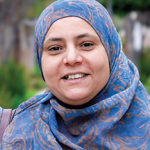
Research Fellows
May Gadallah
Associate Professor, Departments of Statistics, Cairo University

Research Fellows
Amirah El-Haddad
Senior Researcher, German Development Institute and Professor...
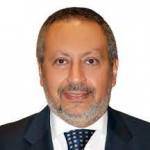
Speakers
Magued Osman
CEO and Director of the Egyptian Center...

Policy Affiliates
Alia El Mahdi
Professor of Economics in Faculty of Economics...
Videos
Stabilization and Adjustment: Towards Inclusive and Sustainable Policies in MENA
Date
03/05/2023
Location
Hybrid
Time
From 12:00 pm To 7:00 pm
Some aspects of today’s economic and financial situations in several MENA countries resemble those that prevailed in the late 1980s-early 1990s, with structural adjustment programs gradually reducing macro-imbalances and a forced rollback of the state resulting in a degradation of public services. At the same time, selective liberalization lead to limited competition, low innovation and insufficient inclusive growth. Once again, a central question prevails: How to address the dual pressures of unsustainable macro and weak growth structure?
Lessons from the 1980s certainly apply but today’s challenges also have to deal with larger populations, export-led growth, pressing climate imperatives, increased social mobilization complicating policy choices and a prevalent informal sector evolving outside the social protection network and extremely vulnerable to shocks. MENA’s oil importing countries have to adjust to high fuel and food prices, and to rising global interest rates. Public debts are growing fast towards unsustainable levels. Already, currency devaluation and inflation are combining to lower economic growth, increase poverty, and put more stress on a battered middle-class, leading to a rise of social unrest.
The challenge ahead is stark: inaction would lead to a financial crisis but austerity alone could only stabilize debt in the very short term. Failing to develop a convincing response raises the threat of a vicious cycle of economic, social, and political declines, including a retreat into populism, and destructive social polarization.
It is against this backdrop that ERF and FDL launched a joint research project on Stabilization and Adjustment in MENA, focusing on the oil importing middle-income countries of the region: Egypt, Lebanon, Tunisia, Morocco, Sudan, and Jordan. The program’s objective is clarify the macro-economic risks related to external and internal balances (and the sustainability of public and external debt), and to propose an overall strategy to tackle these risks, trying to find a balance between austerity and innovative growth measures.
Speakers
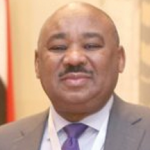
Research Fellows
Ibrahim Elbadawi
Development Studies & Research Forum, Dubai

Research Fellows
Ishac Diwan
Director of Research, Finance for Development Lab,...

Speakers
Adnan Mazarei
Nonresident Senior Fellow, Peterson Institute for International...
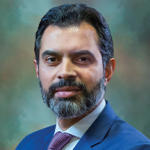
Speakers
Reza Baqir
Senior Fellow, Harvard Kennedy School and Managing...

Senior Associates
Samir Makdisi
Professor Emeritus of Economics, American University of...
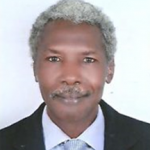
Authors
Kabbashi Suliman
University of Khartoum

Authors
Henri J. Chaoul
Managing Partner, Levantine Partners
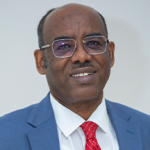
Research Fellows
Hamid Eltgani Ali
Professor of Economics and Public Policy, Doha...

Speakers
Bassem Snaije
Managing Partner, Cosmos Advisors

Policy Affiliates
Alia El Mahdi
Professor of Economics in Faculty of Economics...
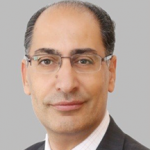
Policy Affiliates
Ibrahim Saif
CEO, Jordan Strategy Forum

Senior Associates
Zafiris Tzannatos
Senior Fellow, Jordan Strategy Forum, Amman and...
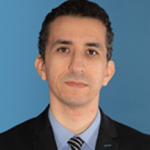
Speakers
Abdelaaziz Ait Ali
Principal Economist and Head of the Research...
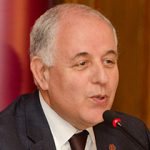
Senior Associates
Mustapha Nabli
North Africa Bureau of Economic Studies (NABES)

Speakers
Kevin Carey
Climate Economics Program Manager, World Bank’s Equitable...
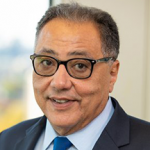
Research Fellows
Hafez Ghanem
Nonresident Senior Fellow, Brookings Institute; Senior Fellow,...
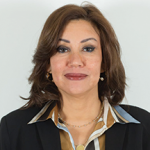
Research Fellows
Abla Abdel-Latif
Executive Director and Director of Research, Egyptian...

Research Fellows
Leila Baghdadi
Senior Economist, MENA Chief Economist Office, World...

Speakers
Ramiro Albrieu
Principal Researcher, South American Network of Applied...
Videos
Agenda
Plenary 1 – Embarking on a Path of Renewal – MENA Commission on Stabilization and Growth – Perspectives and Feedback from the Policy Community
Date
04/05/2023
Location
Cairo, Egypt
Time
From 9:00 am To 11:00 am
In the chaotic global post-COVID-19 economy, with the ongoing war in Ukraine, the challenge of adjusting to the global stagflation that is engulfing the world is particularly hard for the oil importing countries of the Middle East and North Africa (MENA) region. Public debts are rising fast towards unsustainable levels. Already, high interest rates, currency devaluation and inflation are combining to lower economic growth, increase poverty, and put more stress on a battered middle-class, leading to a rise of social unrest.
A regional commission of experts, working under the auspices of the Economic Research Forum (ERF), and the Finance for Development Lab (FDL), was asked to evaluate the macro-economic risks ahead, and to make recommendations on the best course correction to avoid them. After an elaborate process of analysis, consultation, and deliberation, a regional report was prepared, with the aim to convey coherent and comprehensive messages about the risks and opportunities of the region’s development path, and that is anchored around the following questions:
1. In light of the recent major macroeconomic shocks, coming on the heels of a disappointing growth performance over the last decade, how risky is the current development path in MENA, and especially in highly indebted Egypt, Jordan, Lebanon, Morocco, Sudan, and Tunisia?
2. How to avoid financial crises and recessions, and initiate and begin to sustain a higher, more inclusive, and more sustainable growth path?
3. The focus should be on three main policy spaces and how they connect: (i) debt workouts and stabilization measures; (ii) innovative economic, social, and climate- related structural reforms; and (iii) political reform and government accountability.
4. How can the proposed reforms add up to a coherent MENA specific program of progress, adapted to the realities and challenges of our times? What are the main recommendations to national governments, and to the regional and international communities?
This session will reflect on the key findings of the report and responses from senior policy makers from the region and regional and global development partners, covering issue of the financial risks, the contours of national salvation plans that can reduce those risks, and how economic growth can be at the centre of the new reform agenda. In addition, the panel will reflect on short and medium-term reforms that can improve short-term prospects, and help ignite a virtuous cycle of progress as well as longer terms sustainability issues.
Speakers

Research Fellows
Hassan Aly
Dean, Business School, Nile University
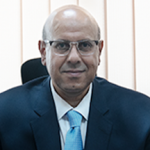
Speakers
Wael Akl
President, Nile University

Research Fellows
Ibrahim Elbadawi
Development Studies & Research Forum, Dubai
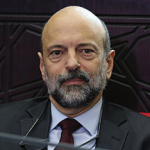
Speakers
Omar Razzaz
Former Prime Minister, Jordan

Speakers
Arjan de Haan
Senior Program Specialist, International Development Research Centre...
Videos
Plenary 2 – Embarking on a Path of Renewal – MENA Commission on Stabilization and Growth –Insights into More Hopeful Directions
Date
04/05/2023
Location
Cairo, Egypt
Time
From 11:30 am To 1:00 pm
The recent ERF-FDL report on Embarking on a Path of Renewal finds that while some reduction in government expenditure is unavoidable, much of the political capital invested in adjusting to the current macro shocks and to high indebtedness should go towards improving growth prospects. Several dimensions of the challenge can be highlighted:
- Public expenditure should be reoriented to social protection and pro-growth spending. To what extent can debt restructuring help achieve these goals? Can countries count on more cooperation between the IMF and the World Bank in shaping longer term growth-focused adjustment programs?
- How to adapt the growth agenda to new global circumstances? Global conditions are not favorable. But there are new possibilities. Export-led growth can get boosted by the delocalization of value chains close to the GCC and Europe. Digitalization can improve labor productivity. Green growth needs to focus on adaptation but can also develop comparative advantage in green-energy intensive products.
- There seems to be enormous new opportunities to expand regional cooperation that can be mobilized in support of reformist national programs on climate adaptation, technology, food security, energy.
- Political leaders need to lead the reform effort. They need to mobilize winners and compensate losers. Improved trust in institutions and confidence about the future can support collective action and generate a virtuous process of progress on all fronts.
In light of these findings, this session will draw the outlines of a research agenda that can take a deep dive to ultimately generate knowledge that can enlighten the policy debate with evidence and rigorous analysis.
Accordingly the session will explore future directions of ERF research for addressing some of these salient questions.
Speakers

Research Fellows
Ishac Diwan
Director of Research, Finance for Development Lab,...

Speakers
Adnan Mazarei
Nonresident Senior Fellow, Peterson Institute for International...
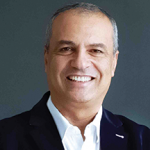
Research Fellows
Adel Ben Youssef
Professor of Economics, University Côte d'Azur

Research Fellows
Hafez Ghanem
Nonresident Senior Fellow, Brookings Institute; Senior Fellow,...

Speakers
Ellen Lust
Professor, Department of Political Science, University of...
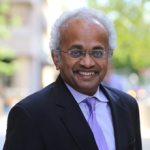
Authors
Shantayanan Devarajan
Professor of the Practice of International Development,...
Videos
Plenary 3 – Global View - A Panoramic Perspective of Risks and Opportunities
Date
04/05/2023
Location
Cairo, Egypt
Time
From 4:30 pm To 6:00 pm
Since 2020, the MENA region has been subject to several external shocks. First, these economies have been severely affected by the pandemic that led to a global contraction of 3.6% and caused a decline in global trade by 8.1%. The COVID-19 shock also revealed the fragility of these economies, especially at the macroeconomic level. The debt ratios reached crisis-proportion levels in several major MENA countries outside the GCC, while continuing to face increasingly limited fiscal space. Second, the ensuing slowdown of oil prices exacerbated an already precarious and unsustainable macroeconomic stance, especially in populous oil-dependent economies of the region. Finally, while not fully recovered from the pandemic, the war on Ukraine led to global consequences, including sharp inflationary spikes, food shortages, disruptions of finance, trade and supply chains all over the world. In view of its heavy dependence on tourism and food imports from Russia and Ukraine, the shock has been much stronger for MENA.
Moreover, available evidence on heat waves, water scarcity and sea level rise suggest that the agenda of environmental sustainability and mitigation and adaptation to climate change are likely to be particularly challenging for the case of MENA. This coupled with the high social mobilization that continues to shape the socio-political landscape since the Arab Spring, is bound to complicate policy making and development planning in the region. However, the region has good prospect should it embrace an inclusive and creative development discourse, prioritizing SDGs, exploiting the emerging digital technology and expanding economic space through bottom up, self-reinforcing regional integration.
Against this backdrop, this plenary will examine the following questions:
- Where is globalization and development strategy heading in the wake of post-covid-19, the war on Ukraine and beyond?
- What are the main tenets of the emerging development model under the emerging digitech economic order?
- How might the new development model be adapted to the challenges and prospects that are most salient to the MENA region?
Speakers

Senior Associates
Mahmoud Mohieldin
Professor, Department of Economics - Cairo University,...

Research Fellows
Rania Al-Mashat
Minister of Planning, Economic Development and International...
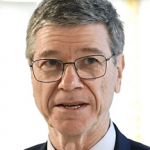
Speakers
Jeffrey Sachs
Director, Center for Sustainable Development, Columbia University

Authors
Klaus Schmidt-Hebbel
Professor of Economics at Universidad del Desarrollo
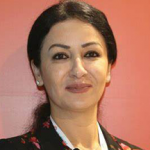
Speakers
Saba Al Mubaslat
Regional Director, Ford Foundation, Middle East and...
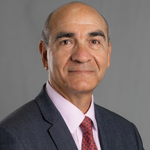
Research Fellows
Hassan Hakimian
Professor of Economics and Director, Middle Eastern...
Videos
Agenda
Plenary 4 – Challenges and Opportunities – Digital Transformation and the MENA Economies
Date
05/05/2023
Location
Cairo, Egypt
Time
From 1:00 pm To 2:30 pm
There is a broad consensus among the academic and development policy communities that digital transformation will have a major impact on developing economies in general and MENA countries in particular.
Two new policy reports by the ERF and UNDP (Fardoust and Nabli, 2022) and the World Bank (Cusolito et al, 2022) have reviewed progress of MENA countries in digitalization, its impact so far on their economies as well as challenges they face in unleashing its potential while mitigating its adverse effects.
In view of the challenges facing developing countries in the coming decade, ranging from slowdown in growth and rising debt and high youth unemployment to climate change, this plenary would discuss how policy makers in MENA countries could address these challenges and position their economies and to partake in the potentially tremendous development potential of the ongoing digitally- based technological revolution. In this context, the plenary will ask the following specific questions:
- How much progress have countries made in harnessing digital technologies?
- What has been the impact on their economies and societies?
- What are the main constraints in the MENA countries that may have slowed down the pace of structural transformation in their economies and benefiting more from digital technologies?
- What are the critical policy and investment initiatives concerning digitalization of economy that would need to be seriously considered by policy makers in the region in order to achieve a higher and more inclusive growth in the coming decade?
- What kind of research and evaluation work is needed in MENA countries to understand better the impact of digital technologies on the economies’ growth and inequality and thereby support better policy-making?
- How can the MENA region develop a network of research centers, , think tanks, private enterprises, and community groups to increase the stock of relevant and impactful knowledge about digitalization of economies and emerging lessons of experience?
Speakers

Policy Affiliates
Mary Kawar
Director, Regional Hub of the Regional Bureau...

Senior Associates
Mustapha Nabli
North Africa Bureau of Economic Studies (NABES)
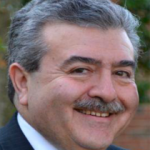
Senior Associates
Shahrokh Fardoust
Research Professor, Global Research Institute, College of...
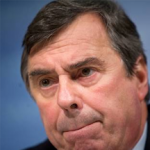
Speakers
François Bourguignon
Director of Studies, School of Hautes Studies...
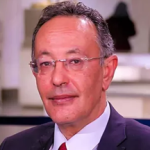
Research Fellows
Ahmed Ghoneim
Professor, Faculty of Economics and Political Sciences,...

Speakers
Paola Pagliani
Regional Programme Coordinator, UNDP
Presentations
Videos
Plenary 5 – Future of Money Between Myth and Reality: Cryptocurrencies and Central Bank Digital Currencies (CBDCs)
Date
05/05/2023
Location
Cairo, Egypt
Time
From 4:00 pm To 5:30 pm
As the pioneer of all cryptocurrencies, Bitcoin emerged as a solution to the global development issues just after the 2008 global financial crisis outbreak. The primary developmental concerns for the Bitcoin proponents are still the monetary policy practices by the central banks. Since then, cryptocurrencies have increased in number and claimed to provide various digital solutions for the issues of financial systems. Some of these solutions are more substantiated than others. But certainly, there are private solutions and hence pose a challenge to the solutions traditionally provided and designed by the central banks. Central banks had perceived such a challenge very early with the advent of cryptocurrencies and started developing their alternatives, namely Central Bank Digital Currencies (CBDCs). Among many others, CBDCs have lots of developmental benefits depending on the economic development level of a country, including the cost of managing and transferring funds, technological efficiency, financial inclusion, preventing illicit activity, protection of money as a public utility, the safety of payments systems, preservation of seigniorage income. These are still potential but likely to occur disruptively in the near future. Thus, this panel will focus on:
- What are the monetary policy implications of CBDCs, and how are the developing countries and MENA countries likely to be affected? How will the global monetary policy coordination change with CBDCs?
- Will Cryptocurrencies and CBDCs coexist, and how much will they cater to the needs of the market and the states?
- How will the CBDCs and cryptocurrencies change the doing business in financial markets and affect the competition, M&As, especially in banking?
- Will CBDCs help with more micro-targeted developmental policies? Will Blockchain-based private coins foster trust in developmental policies? How do they help to reach SDGs?
- From a development perspective, how can FinTech solutions, including cryptocurrencies and CBDCs, lead to the financial inclusion of both households and firms?
- What is the new global governance structure for the future of money? How does digitalization affect governance and regulations within and across countries?
- Is the Central Bank digital currency feasible for MENA countries? What are the financial and legal requirements needed for such a new product?
Speakers

Research Fellows
Hassan Aly
Dean, Business School, Nile University

Speakers
Stephen Cecchetti
Rosen Family Chair in International Finance, Brandeis...

Research Fellows
Ahmet Faruk Aysan
Associate Dean for Research, Hamad Bin Khalifa...

Speakers
David Lee
Professor, Finance Programme, Singapore University of Social...
Videos
Agenda
Plenary 6 – Commemorating Prof. Ali Abdel-Gadir Ali Contributions to Development Policy in the Arab World
Date
06/05/2023
Location
Cairo, Egypt
Time
From 9:30 am To 11:00 am
This session honours the legacy of the late Prof. Ali Abdel Gadir Ali as a development thinker, distinguished professor of economics and senior affiliate of ERF. The Arab and African economic communities lost one of the most prominent Sudanese and Arab economists and thinkers. Prof. Ali’s long standing career teaching economics at Khartoum and Gezira Universities in Sudan influenced the lives of many generations in Sudan. His leadership roles at the various Arab and African development institutions, in addition to his seminal research contributions to leading research networks in Africa and MENA, contributed to highly influential publications and policy discussions on Arab and African development policy issues. He published widely on governance, conflict and peace-building, economic reforms and most notably on poverty and inequality agenda. He was not only a respected high profile academic researcher but he was also a passionate advocate in public forums for commitment to the fight against poverty and inequality.
The session will feature presentations and reflections by his friends and professional colleagues, who worked and collaborated with him on research and policy debates throughout his illustrious career.
Speakers
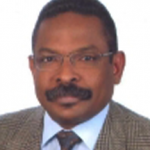
Speakers
Ibrahim El Souri
Retired Ambassador and Former Advisor to the...

Research Fellows
Ibrahim Elbadawi
Development Studies & Research Forum, Dubai

Policy Affiliates
Khalid Abu-Ismail
Senior Economist, United Nations Economic and Social...

Senior Associates
Samir Makdisi
Professor Emeritus of Economics, American University of...
Videos
Plenary 7 – Green Economy and Energy Transition – Focus on Growth and Development
Date
06/05/2023
Location
Cairo, Egypt
Time
From 4:00 pm To 5:30 pm
The United Nations defines the green economy as “low carbon, resource efficient and socially inclusive”. At the MENA region level, there is an urgent need to adopt mitigation and adaptation strategies in order to meet its commitments in environmental agreements and avoid the negative consequences of climate changes. Moreover, the latter will exacerbate other structural challenges related to water scarcity, energy security, and political stability that affect the development of MENA countries in the long-run. Hence, this plenary will examine the following questions:
- Bearing in mind the nature of MENA exports, specialization and patterns on economic interactions among the countries in the region, how can these countries reduce carbon emissions? How can the resources of these economies be re-allocated more efficiently to achieve a greener economy? What are the likely consequences on oil exporters in the region if fossil fuels become stranded assets? What are the likely consequences on countries in the region that depend on remittances, exports and development aid from the oil producing countries in the region? What are the expected risks of this possibility and how best to mitigate them?
- What is the nature of public and private investments that will lead to reduced carbon emissions and pollution and prevent the loss of biodiversity? How much investment is needed to adapt to the likely consequences of climate change in the region? How would these investments in adaptation programs reduce the expected costs of climate change disasters if nothing is done to mitigate and invest in adaptation programs to the likely climate change impacts?
- What is the nature of policies implemented so far in the MENA region to reduce carbon emissions and pollution? How effective were they and what are the constraints and challenges impeding their efficient implementation?
- What is the role of international donors in achieving such goals? what specific and special adaptation programs are needed in the region and why? What is the cost of these programs? What sources of funds are available domestically and internationally to tap into? What share and in what programs should international donors invest in the region to help them deal with climate change?
- From a socioeconomic perspective, what are the most likely impacts of climate change in the region given its food security vulnerability, water shortages, sea level rise, high temperatures. What vulnerable groups are likely to suffer most from climate change? How to adopt more proactive policies that would help curb or moderate these negative effects?
- How can the region meet growing energy demands in cleaner and more affordable ways? How to support the transition from fossil fuels to clean and renewable energy? Who are the main players, what motivates them and how to influence their choices and behavior? Who are the main beneficiaries and how to make it more inclusive?
Speakers
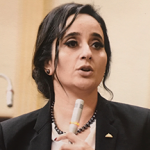
Research Fellows
Hala Abou-Ali
Professor of Economics and Chair of the...

Research Fellows
Atif Kubursi
Professor, McMaster University
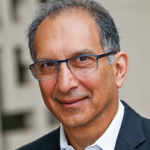
Speakers
Homi Kharas
Senior Fellow, Center for Sustainable Development, Brookings...

Research Fellows
Kamiar Mohaddes
Macroeconomist, Judge Business School, University of Cambridge

Speakers
Hélène Djoufelkit
Director, Economic Diagnostics and Public Policy Department,...


